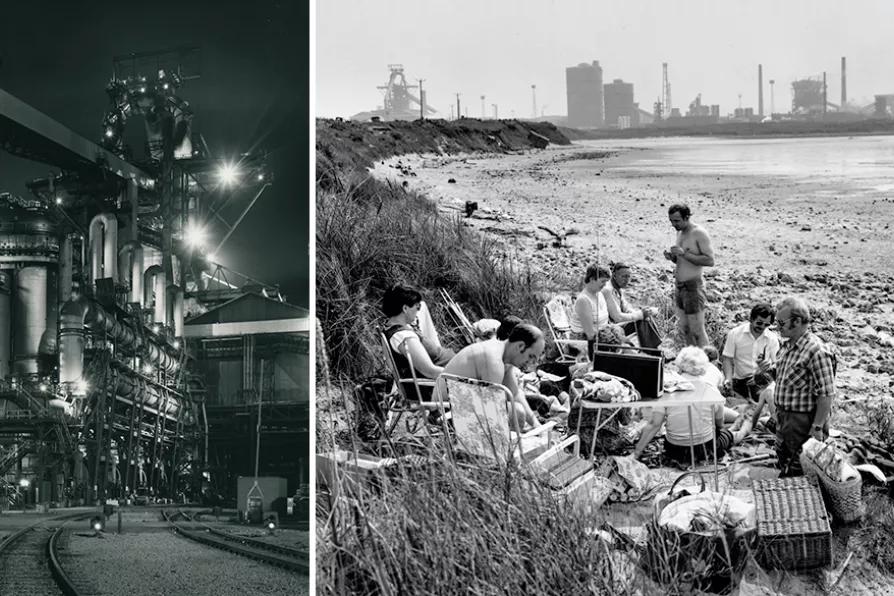BRENT CUTLER recommends a sober examination of the real risks and true merits of nuclear energy, and an exposure of the capitalist system as an obstacle to human betterment

 Redcar Blast Furnace, 2.00am Midsummer night, 1986; Picnic on Bran Sand, South Gare, Teesmouth 1982
[Courtesy of the artist]
Redcar Blast Furnace, 2.00am Midsummer night, 1986; Picnic on Bran Sand, South Gare, Teesmouth 1982
[Courtesy of the artist]
Ian Macdonald – Fixing Time
Northern Gallery for Contemporary Art, Sunderland
FIXING TIME is the title of a comprehensive exhibition of 50 years’ work by Ian Macdonald, the north-east England photographer and artist. It takes place across two venues, the Northern Gallery for Contemporary Art and Sunderland Museum and Winter Gardens.
Macdonald’s extensive body of work is dedicated to documenting working-class life, and the rise and fall of heavy industry in the north-east in the last decades of the 20th century. This has been, of course, a period marked by huge political shifts and social upheaval. There are a wide range of themes, including People, Towns and Portraits; Greatham Creek, Teeside; Smith’s Dock Shipyard; Redcar Blast Furnace; and School Portraits.

KEVIN DONNELLY accepts the invitation to think speculatively in contemplation of representations of people of African descent in our cultural heritage

Peter Mitchell's photography reveals a poetic relationship with Leeds












